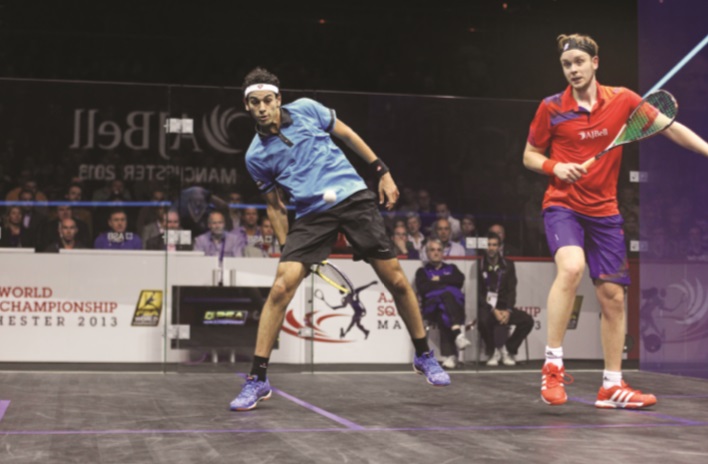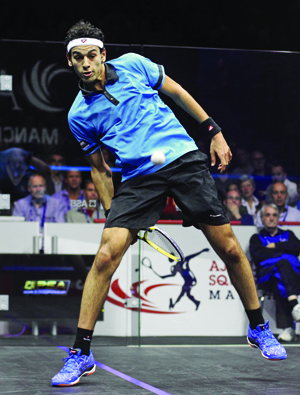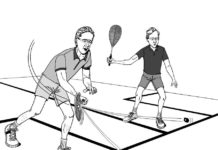By Barry Faguy
Having originally dealt with all the key principles of decision making in treatise form, we carry on the explanations by zeroing in on questions we’ve received over the years.
HEY REF! My opponent’s friends were pretty rowdy during our match—often criticizing the referee’s decisions and often trying to distract me during my serve. Can the referee assess a conduct penalty against my opponent for her friends’ behavior?
No – there is no allowance for that. The power of a vicarious penalty against the player applies only for ‘coaching’ (that is, giving advice) of that player during the course of a game (not between games). The referee should be quite certain that such a person is indeed that player’s coach. It does not apply to behavioral issues by another person like you are describing. For such instances, appropriate warnings should be given to the people causing the fuss—failing which, the referee “shall suspend play until the disruption has ceased.” The referee may in fact insist that the guilty ones leave the court area.
HEY REF! What exactly is the difference between ‘wrong footing’ and ‘created interference? It seems to me that in both cases, the player is going the wrong way—so how is one different from the other?
Indeed, both those actions resemble each other—but the potential decisions differ greatly. The only decision possible for ‘created interference’ is a No Let, whereas for a case of ‘wrong footing’, any of the three decisions is possible. Wrong footing is the one most commonly seen; a player mistakenly goes the wrong way (either because of being fooled, or making a bad guess)—and then tries to correct the error and change direction, only to now find the opponent in the way. The rules do not hold this against a player, and so we then apply the usual considerations, which are: a) could that player have recovered to get to the ball? and b) was that player in- deed making every effort to do so?
On the other hand, with ‘created interference’, the striker deliberately (not mistakenly) goes the wrong way so as to artificially generate an interference, either to try to avoid having to make a difficult return, or to try to coax a stroke out of it. It can also occur when the striker takes an exaggerated swing meant to artificially include the opponent. Created interference is in fact, a euphemism for cheating—and only a No Let is appropriate.
HEY REF! Here’s an interesting one. My swing was entirely ‘prevented’ by my opponent—but the shot I was making was to hit the ball towards the back wall. Is it still a stroke for major swing interference?
Yes—if the swing indeed suffers a major interference, then it’s a stroke and not an exception to the rule, no matter how good the clearing effort of the non-striker and no matter where the ball was going (assuming a good return was possible, of course). However (you knew that was coming, eh!), the rules do allow for two exceptions elsewhere: if you were making a ‘further attempt’, or if you were ‘turning’ when it happened, then a let is the correct decision.
HEY REF! I hit the ball hard towards my opponent, who then reflexively hit it between his legs towards the front—and it then hit me. I was penalized a stroke. I’d been told that that kind of shot was the same as turning—and the rule I then read says that if a striker turns and hits the opponent with the ball, then the opponent gets the stroke. What gives?
What you read in the rules is correct, but what happened in your case is not ‘turning’. For ‘turning’ to apply, the ball must first pass on one side of the striker, and then be hit on the other. So, “between his legs” is not a side of the body. Interestingly, before 1989, that was indeed considered the same as turning—as was hitting the ball behind the back, but those provisions no longer exist.






